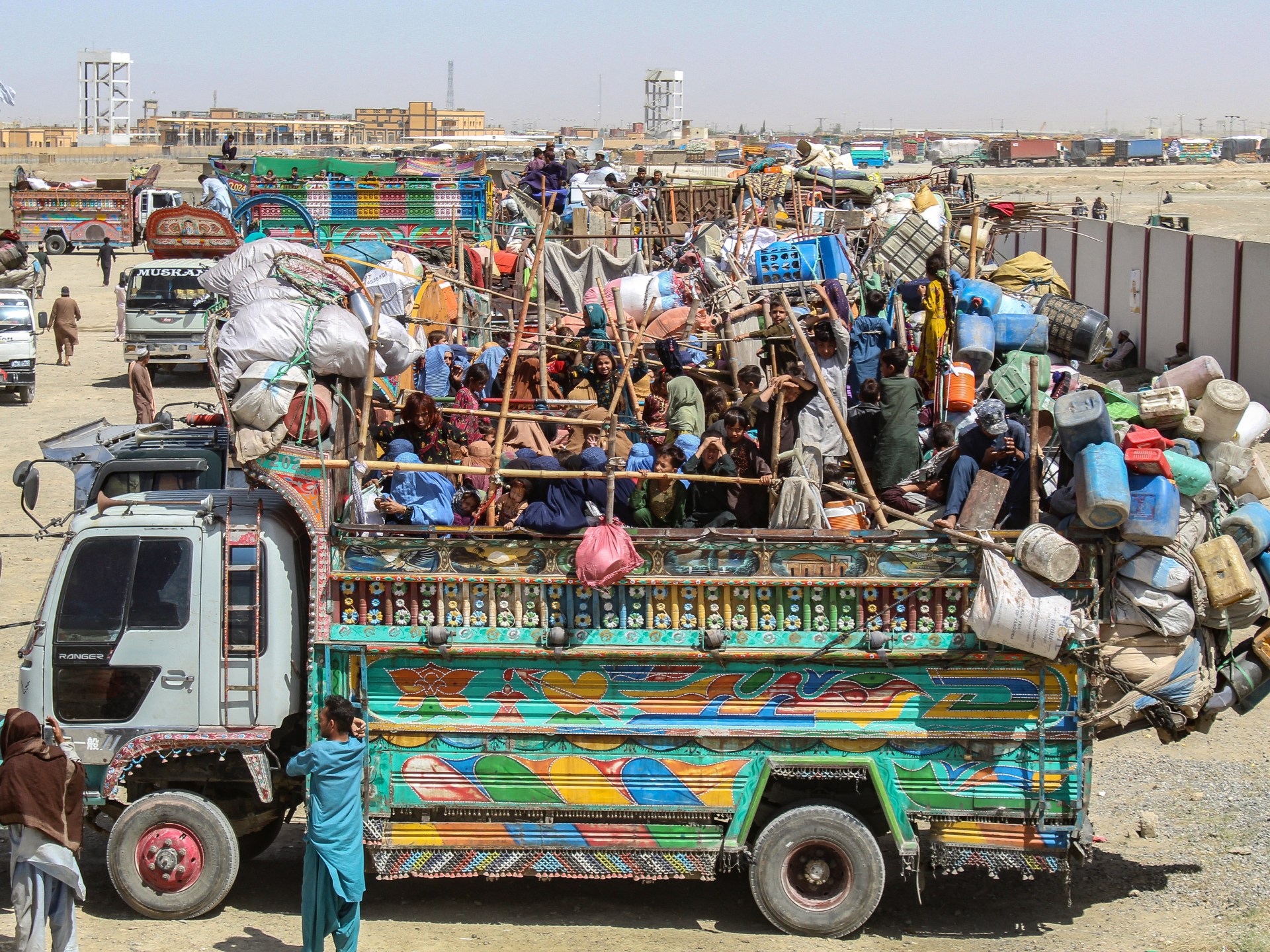In a move referred to by Afghanistan as “forced deportation,” Pakistan has confirmed that it has repatriated more than 80 000 Afghan nationals since April 1, in addition to Pakistan’s largest migrant group’s extended April 30 deadline.
The Illegal Foreigners Repatriation Plan, which was introduced in late 2023 and covers more than three million Afghans, would no longer be extended, according to Talal Chaudhry, Pakistan’s interior ministry official, in Islamabad on Friday.
If a person gives a shop, home, or any other kind of space to an illegal foreigner, they will be held legally accountable, he said in clear instructions to all provinces.
Prior to March 31, those who were denied access to Afghan Citizen Cards or valid documents were initially ordered to leave. That deadline was later changed to a month.
Since the start of April, Pakistan has expelled nearly 60, 000 Afghans, according to the International Organization for Migration, a UN agency.
The head of the IOM’s Afghanistan mission, Mihyung Park, said at the time, “With a new wave of large-scale returns now coming from Pakistan, needs on the ground are rising rapidly, both at the border and in areas where large numbers of returnees are struggling to withstand large numbers of returnees.”
More than 1.3 million Afghans who use UNHCR’s Proof of Registration cards were also instructed to leave Islamabad and the nearby Rawalpindi.
Ishaq Dar, Pakistan’s foreign minister, will travel to Kabul on Saturday to meet with a delegation to discuss important issues with the Taliban-led government.
According to a statement from Pakistan’s foreign office, “the talks will cover the entire gamut of the Pakistan-Afghan relationship, focusing on ways and means to deepen cooperation in all areas of mutual interests, including security, trade, connectivity, and people-to-people ties.”
We don’t want to leave, we say.
Afghan families who have resided in the nation for decades are at risk of being displaced by the crackdown.
Akber Khan, the owner of a restaurant in Peshawar, told The Associated Press news agency earlier this month: “I have been here for almost 50 years. 10 of my family members are interred here, along with my husband, and my children. We don’t want to leave, because of this.
In Khyber Pakhtunkhwa, in the northwest of Pakistan, live at least a third of the Afghans Pakistan wants to expel this year.
Afghans can never be completely repatriated, especially those who are from Khyber Pakhtunkhwa because they return via illegal channels or by exploiting system gaps, according to Abdullah Khan, managing director of the Pakistan Institute for Conflict and Security Studies, according to Al Jazeera.
“Security threat”
Kabul, which has consistently criticized Islamabad for making connections between Afghan refugees and growing security threats and criminal activity within its borders, refutes Kabul’s claims that the campaign was politically motivated and forced deportation.
Authorities in Pakistan claim to have processed and accommodated Afghan nationals before returning to their homelands.
The main gateway into eastern Afghanistan is Torkham border crossing in Khyber Pakhtunkhwa province, where the majority of the people are being transported.
The repatriation drive has received criticism from human rights organizations because it poses a risk to vulnerable people, particularly children and women, who may be subject to insecurity or persecution upon return.
Source: Aljazeera

Leave a Reply